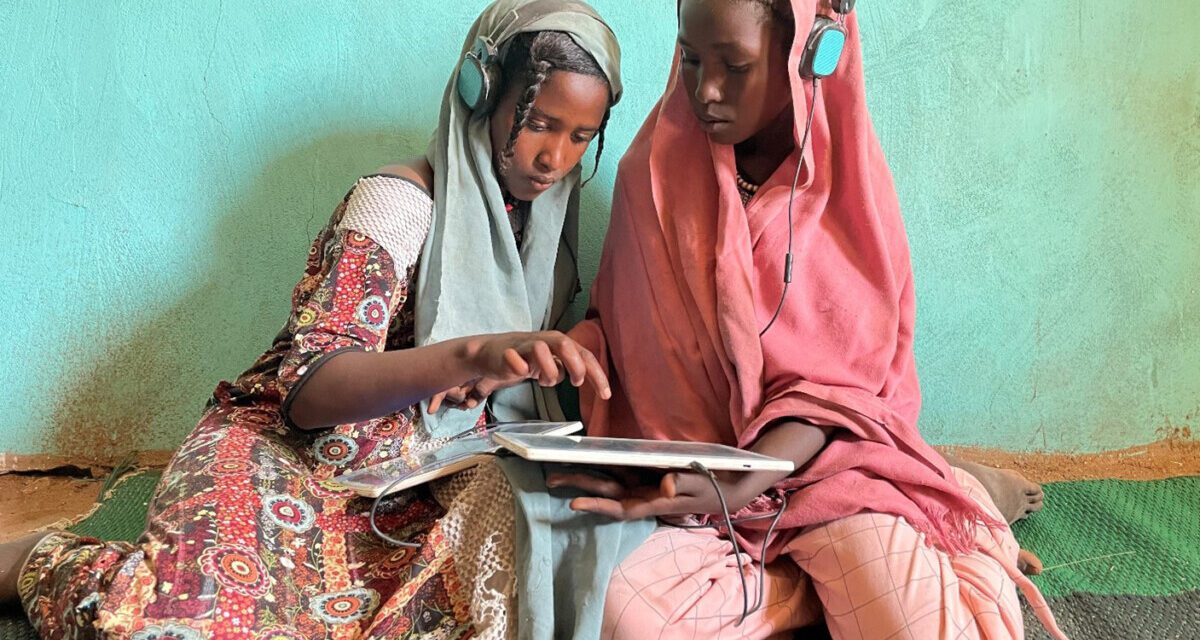This blog is written by Manos Antoninis, Director, Global Education Monitoring Report. It is based on a session at the September 2023 UKFIET conference.
Education technology generates passionate debate. Is technology leading the way for democracy by offering unfiltered access to all human intellectual output at the hit of a button; or does it pose a grave threat to democracy by offering unprecedented ability to a few people to control the content that reaches most people? Does technology offer countless opportunities or is it reducing opportunities, taking us down a technology-dependent trajectory from which there will be no return? Does education technology help countries leapfrog stages of development and promote equality; or does it exacerbate inequality – between and within countries? Should technology-related competencies be embedded in young children’s care and education, or are there serious risks to young children’s cognitive, social and emotional development?
Technology is evolving at a breakneck speed. Those who lead developments are always a step ahead of those who can evaluate them and those who need to take relevant decisions on legislation, policy and regulation. Research on technology in education is as complex as the technology itself. Are results influenced by the commercial interests of those who created the technology? What is to be made of research which shows that the promise of education technology is not being realised to its full potential? Ultimately, are we asking the right education questions before confirming whether technology should be one of the solutions?
Analysing technology in education under the lenses of relevance, equity, scalability and sustainability
The 2023 Global Education Monitoring (GEM) Report analyses the use of technology in education around the world under the lenses of relevance, equity, scalability and sustainability. The report argues that education systems should always ensure that learners’ interests are placed at the centre and that digital technologies are used to support an education based on human interaction rather than aiming at substituting it.
It examines the education challenges for which appropriate use of technology can offer solutions, while recognising that many of the current solutions proposed may also be detrimental. The report examines issues of access, equity, and inclusion in education, looking at ways through which technology can help reach disadvantaged learners but also ensure more knowledge reaches more learners in more engaging and cheaper formats. It focuses on how quality can be improved, both in teaching and learning basic skills, and in developing the digital skills needed in daily life. It recognises the role of technology in system management with special reference to assessment data and other education management information that can be widely used for planning.
 The 2023 GEM Report states that the focus must be placed on ensuring that technology in education puts learners and teachers’ best interests at the centre. Its suitability and value need to be proven in relation to a human-centred vision of education. It invites policy-makers and other relevant stakeholders to ask themselves the following questions:
The 2023 GEM Report states that the focus must be placed on ensuring that technology in education puts learners and teachers’ best interests at the centre. Its suitability and value need to be proven in relation to a human-centred vision of education. It invites policy-makers and other relevant stakeholders to ask themselves the following questions:
- Are these tools actually appropriate?
- Who do they leave behind?
- Can we truly afford them?
- Are we taking decisions based on sufficient evidence?
- What kind of tomorrow will they build?
The GEM Report at UKFIET 2023 conference
The GEM Report organised a session during the UKFIET conference to look at the findings and recommendations of its report in technology. Claire Hedges and Freda Wolfenden from The Open University, Rohan Carter-Rau and Brad Olsen from the Center for Universal Education at the Brookings Institution and David Hollow and Saalim Koomar from EdTech Hub were invited as discussants, reflecting on each recommendation from the report.
Rohan Carter-Rau and Brad Olsen reflected on the importance of designing, monitoring and evaluating education technology policies with the participation of teachers and learners to draw on their experiences and contexts and ensure that teachers and facilitators are sufficiently trained to understand how to use digital technology for learning, not simply how to use a specific piece of technology.
Freda Wolfenden reflected on why digitalisation of education poses a risk of benefiting already privileged learners and further marginalising others, thus increasing learning inequality.
Claire Hedges’ intervention focused on affordability, looking at the deployment of edtech solutions from a perspective of cost-effectiveness, procurement and sustainability.
David Hollow and Saalim Koomar responded to the fourth question on evidence, looking at how, within an overwhelming array of technological products and platforms in education, countries and education stakeholders can make decisions based on evidence of their benefits and costs, privileging learning outputs over digital inputs.
Finally, all panellists reflected on the last question which looks at the future and reflected on the way that technology can support sustainable education futures.





